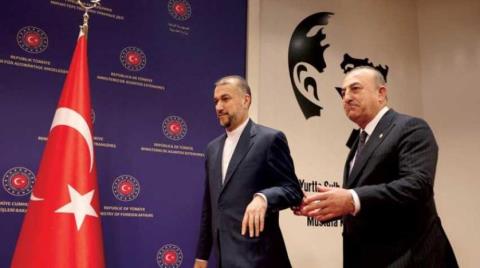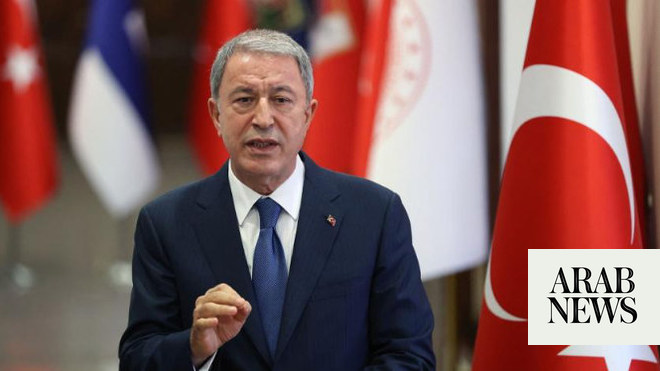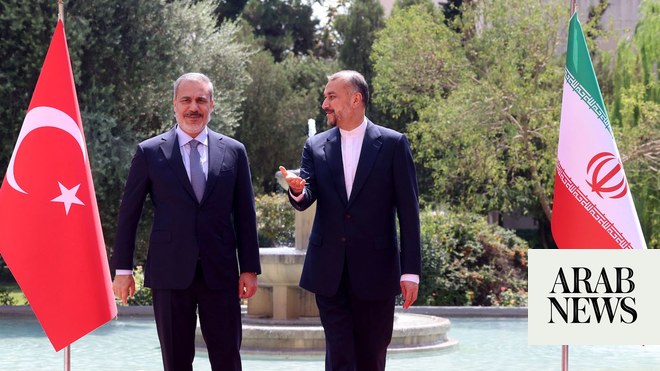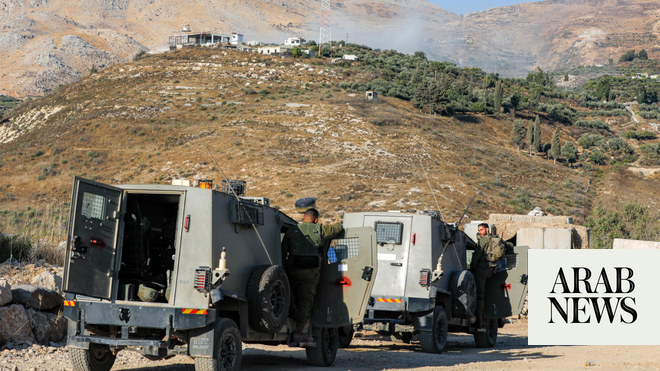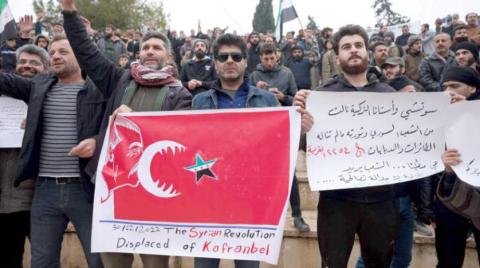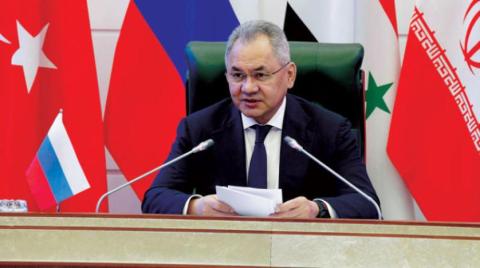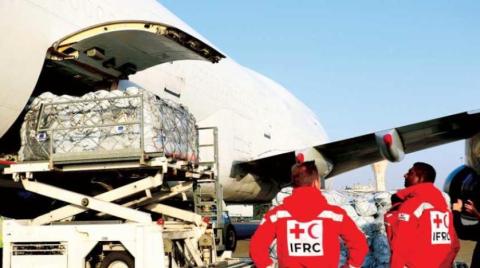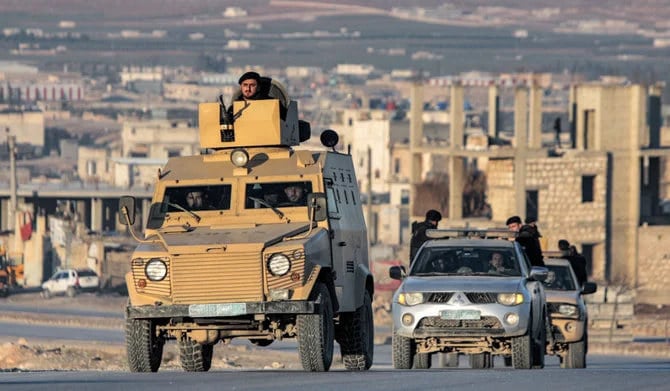
The normalization of Turkish-Syrian relations under Russian auspices proceeded smoothly until Iran’s prompt intervention interrupted the process.
Turkiye expressed its willingness for full normalization with the Syrian regime due to internal reasons related to the Turkish economy to open border crossings with Syria and export Turkish goods to Arab countries.
Russia responded to the Turkish initiative by sponsoring it and putting pressure on the Assad government to unconditionally agree to direct talks with the Turkish side. The initiative went from security meetings with the Syrian side to meetings at the level of defense ministers of both countries. Russia hosted the meeting and pushed its development to the political level through talks between the foreign ministers of both countries in Moscow. At that point, Iran intensified its political activities/interactions with the Syrian regime in order to curb the Turkish-Russian impulse for fear of losing some of its influence.
Russian-Turkish meetings regarding Syria have always involved Iran, but normalization meetings have entirely ruled that out. As a result, Tehran began to feel that the Syrian issue was no longer being managed trilaterally/with tripartite presence, as was the case at the meetings in Sochi and Astana.
Tehran fears restoring Turkish-Syrian relations will come at the expense of its share of influence, in addition to trade benefits, reconstruction contracts, public sector investment, and the profits from the extraction of natural resources such as oil, gas, minerals and phosphates.
Although Iran publicly welcomes Turkiye’s opening up to Damascus, its stance differs from what it has announced. Tehran sent Foreign Minister Hossein Amir-Abdollahian to Damascus to ask the Syrian regime to raise the ceiling on demands in exchange for normalizing relations with Turkiye.
After these visits, Assad and his government declared that there could be no full normalization of relations with Turkiye without a complete withdrawal from Syrian lands. This position contradicts the agreement between Turkiye and Russia that normalization will happen without further conditions.
Iran’s position in Syria is full of contradictions. Iran wants the regime’s return as a legitimate government that has relations with all the countries of the world, but at the moment fears the current imbalance of power between Turkiye, Russia and its influence in Syria. During bilateral Turkish-Syrian talks, Iran pressured its militias to move toward northern Syria near Ankara-controlled areas as an indirect signal that there would be no normalization without Tehran’s approval.
Turkiye prefers Russia as the main mediator in talks with Syria because Moscow is more flexible than Tehran in accelerating normalization over time. Moreover, Russia is ready to put pressure on the regime’s government to react logically, as Moscow and Ankara cooperate not only in Syria but also in Ukraine. The two countries have well-established political and military coordination, which ensures that the normalization process between Ankara and Damascus is proceeding according to the wishes of the Turkish leadership.
Tehran fears restoring Turkish-Syrian relations will come at the expense of its share of influence.
Ghassan Ibrahim
Moscow also agrees with Turkiye in excluding Iran from the normalization process, and that indicates Iran’s rivalry with Russia and Turkiye and the divergence of interests.
Turkiye wants Tehran to refrain from entering talks directly and prefers Iran not to participate in details of normalization steps with Syria. There is a conviction among the Turkish leadership that Iran’s involvement in this matter will be both complex and slow, which may worry other countries in the region.
However, Turkiye cannot wholly and crudely exclude Iran. Turkiye’s presidential spokesman, Ibrahim Kalin, said that his country “welcomes Iran’s accession to the talks it is having with Syria, with Russian mediation.” These statements were made ostensibly to welcome Iran’s participation. What Kalin tried to achieve, however, was nothing more than an attempt to contain Iranian anger. His statements were merely a diplomatic message, not a genuine desire for Iran to sit at the same table during the meetings.
Subsequently, the Russian Foreign Ministry announced an upcoming meeting at the level of military delegations of Russia, Turkiye and the Syrian regime later this month. The statements of the Russian Foreign Ministry did not refer to the participation of the Iranian delegation in the meeting.
There appears to be a coordinated agreement between Turkiye and Russia to exclude Tehran from negotiations for fear of deviating from the talks and the goal agreed on between Moscow and Ankara.
Turkiye and Russia realized that all the roles played by Iran in Syria went against the common trend and obstructed a comprehensive political solution to the war in Syria.
Iran may continue to impede the Syrian-Turkish reconciliation, but it cannot stop it. Tehran realizes that the room for maneuver is limited when it comes to questioning the decisions of the Russian president and his agreements with his Turkish counterpart.
Convincing Turkiye and Russia of the need to distance Iran from normalization is a step no less critical than normalization itself and marks the end of tripartite coordination.
• Ghassan Ibrahim is a British-Syrian journalist and researcher on issues regarding the Middle East, most notably Turkiye, Syria and Iran. He can be reached at www.ghassanibrahim.com.




